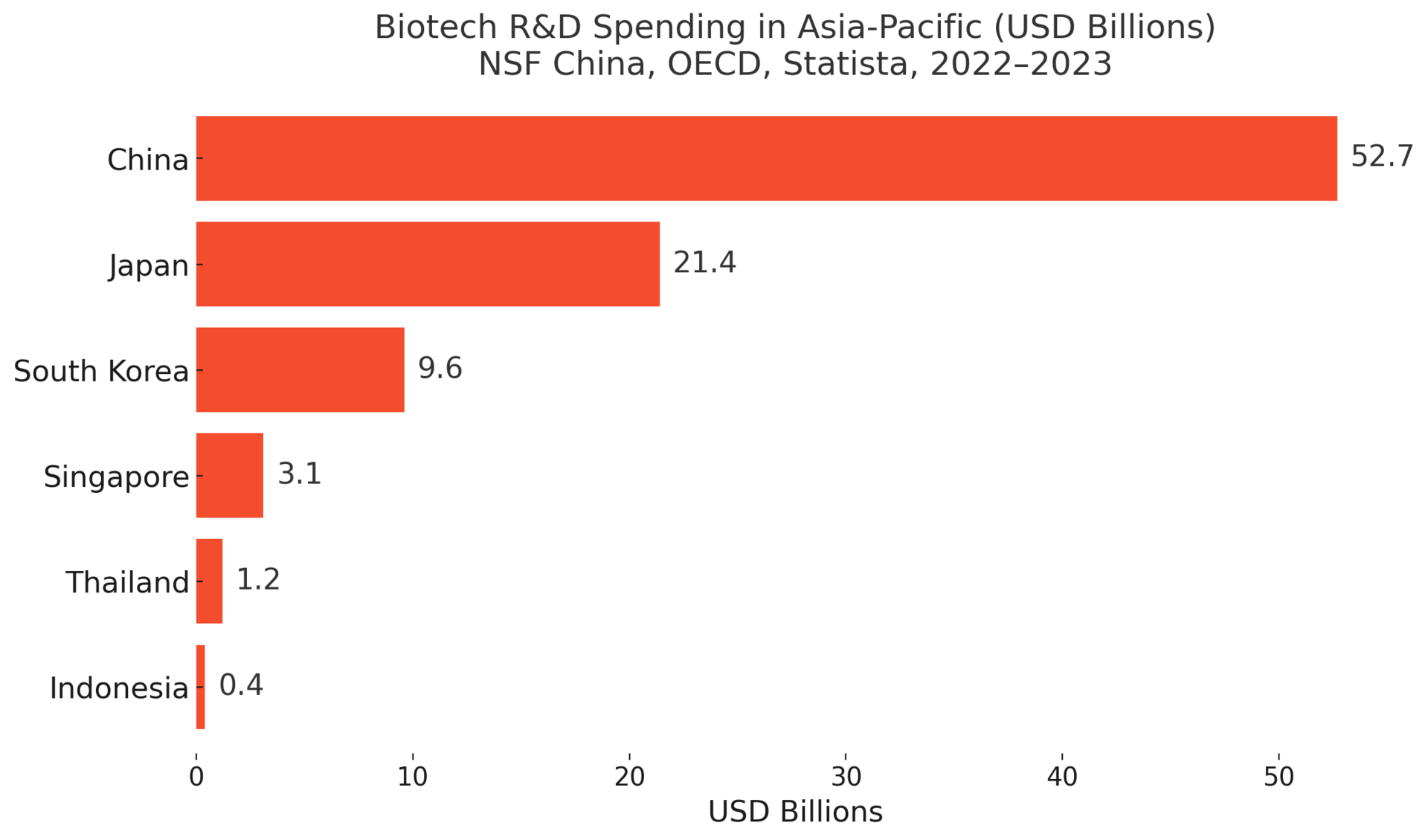- World Population Review Newsletter
- Posts
- Inside the Labs Quietly Extending Human Life
Inside the Labs Quietly Extending Human Life
Mapping the nations shaping the future of health—and who’s missing out.
Greetings, discerning navigator of tomorrow’s breakthroughs,
Biotech isn’t whispering anymore—it’s roaring. Lab-grown organs. Gene-edited cures. AI-built molecules. We’re not just rewriting medicine—we’re reshaping human potential.
But not everyone gets a seat at the table.
In this edition, we reveal where cutting-edge therapies are born, who’s funding them, and where the world is falling behind. Whether you're planning where to live, invest, or access world-class care—this matters.
Let’s dive into the frontier of repair, regeneration, and reinvention.
Former Zillow exec targets $1.3T
The top companies target big markets. Like Nvidia growing ~200% in 2024 on AI’s $214B tailwind. That’s why the same VCs behind Uber and Venmo also backed Pacaso. Created by a former Zillow exec, Pacaso’s co-ownership tech transforms a $1.3 trillion market. With $110M+ in gross profit to date, Pacaso just reserved the Nasdaq ticker PCSO.
Paid advertisement for Pacaso’s Regulation A offering. Read the offering circular at invest.pacaso.com. Reserving a ticker symbol is not a guarantee that the company will go public. Listing on the NASDAQ is subject to approvals.
No country pours more into biotech than the U.S.—and it shows.
With powerhouse hubs like Boston, San Francisco, and San Diego, the U.S. is leading breakthroughs in CRISPR, mRNA, and cancer immunotherapy. Private investment is colossal: venture capital funding for biotech surpassed $47 billion in 2023 alone.
Yet access remains the Achilles’ heel. Sky-high drug costs and a fragmented healthcare system mean innovation doesn’t always translate into care for all.
🔎 Contrasting stat: The U.S. leads global innovation, yet ranks 29th in access to primary care.

Europe’s biotech rise is quieter—but deeply calculated.
Germany is scaling precision manufacturing for gene and cell therapies, while Switzerland’s pharma giants (think Novartis and Roche) are exporting CAR-T cancer therapies around the globe. Strong public-private collaboration and high regulatory trust help translate lab work into approved treatment.
The catch? Conservative timelines. Breakthroughs often debut later here than in the U.S.
💡 Quiet giant: Switzerland invests more per capita in biotech R&D than any other nation on earth.

Once a biotech follower, China is now a formidable contender.
Massive government support, lax trial regulations, and a tech-enabled research workforce have fueled a biotech explosion. From AI-designed proteins to next-gen cancer therapies, Chinese labs are turning out serious science—fast.
Yet trust remains a hurdle. Global partnerships are growing, but concerns over data transparency and IP rights persist.
📈 Emerging trend: China now represents 16% of all global biotech IPOs—up from just 2% in 2018.

India isn’t chasing moonshots—it’s democratizing biotech.
As the world’s largest vaccine manufacturer and biosimilar exporter, India is the go-to hub for cost-effective biologics. Hyderabad’s “Genome Valley” houses over 200 biotech firms, many focused on driving down treatment costs globally.
Still, India’s innovation pipeline remains limited compared to Western giants—most advances are incremental, not revolutionary.
🌍 Global footprint: India supplies over 60% of the world’s vaccines—reaching 150+ countries.

Small in size, mighty in ambition.
Singapore is building Asia’s premier hub for cell therapy and regenerative medicine, fueled by $4 billion in recent biotech investment. South Korea, meanwhile, leads in wearable biotech and neurodegenerative research, blending tech innovation with cultural agility.
Both nations benefit from robust healthcare systems, well-educated populations, and smart policy moves.
🧪 Strategic target: South Korea aims to be the world’s #1 exporter of biopharmaceuticals by 2030.

Africa has long been left out of the biotech conversation—but that’s changing.
South Africa, Rwanda, and Senegal are investing in genomic sequencing, homegrown vaccine production, and biotech education. Backed by WHO and private partners, the continent is building resilience against health dependency.
Challenges abound: infrastructure, funding, and talent gaps. But the seeds are planted.
🧬 Milestone moment: Rwanda launched Africa’s first mRNA vaccine plant in 2022—powered by BioNTech.

Here’s the paradox: we’re curing diseases we couldn’t even diagnose a decade ago—but only for some.
Groundbreaking treatments like gene therapy and RNA-based drugs now exist—but cost $1M+ per dose. Meanwhile, 75% of humanity still lacks access to basic cancer screenings.
Policy, pricing, and public health will determine whether biotech benefits the few or the many.
🚨 Future forecast: By 2035, three-quarters of all biotech therapies may be concentrated in just 10 countries.

Biotech isn’t just revolutionizing medicine—it’s reshaping how and where we live our lives.
Whether you're weighing retirement destinations, global investments, or longevity strategies, understanding where medical innovation is happening—and where it’s accessible—is more important than ever.
The future of health is being built now. Let’s make sure we’re building it for everyone.
Warm regards,
Shane Fulmer
Founder, WorldPopulationReview.com
P.S. Want to sponsor this newsletter? Reach 126,000+ global-minded readers — click here!

